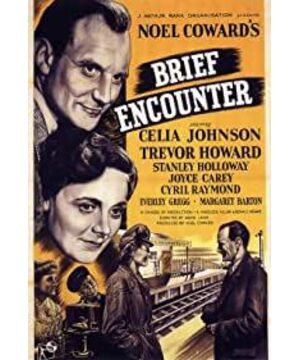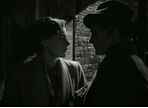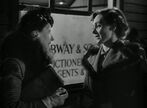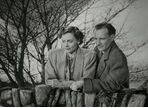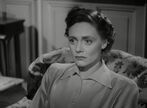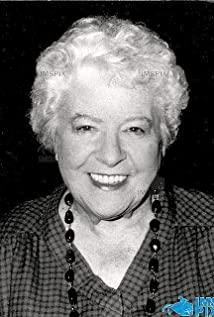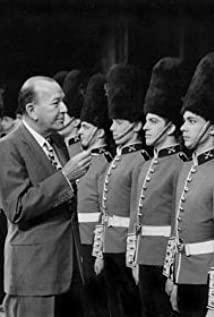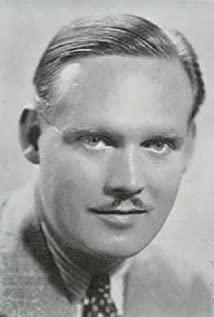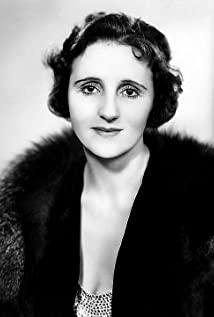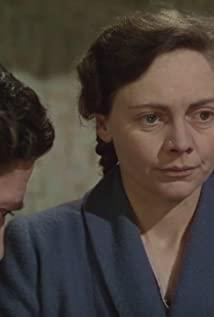If I didn't mention it in the interview, I met you, I met you late, this old British film, it is estimated that few people would know about it. Like China in the 1980s and 1990s, there were still many ideas of hierarchy left in Britain at that time, Many traditional ethical and moral ideas have a textbook-like term: feudalism. Also, Britain is a country that has always been popular and forbearance, especially the upper-class celebrities, who adhere to various dogmas. Does this sound similar to our country? It was against this background that we met each other. At first glance, my impression was like seeing Fei Mu's small town spring. A few days ago, I read a love story written by Akutagawa Ryunosuke, and I also read O Henry's Two Pieces of Bread. Its psychological description of women is really wonderful. The heroine's admiration for the hero is mostly out of lust, and then the hero is surprised that he only loves the piano, and the hero angrily says that the heroine ruined the design. Women love fantasy, and love begins here. Meeting Hate Late also tells the whole story from a female perspective. Maybe reading these two romance novels will be more conducive to understanding these films from a female perspective. The film begins with the heroine sitting at the train station with the hero—their last day, but then walks into a woman who is acquainted with chatter, and the heroine listens anxiously and has to force a smile. Her inner struggle is resistance to society. At this time, only light and shadow can reflect her feelings, and she will slowly tell the past. In the era of the introduction of marriage as the right place - as in China - most women did not taste the taste of love, but mistaken the married life for love. However, everything wrapped in this paper can't stand the fire, only the star-like love can become a prairie fire. When faced with your own raging lust, maybe you will struggle like the heroine, maybe you just understand such struggle, this is everyone's hope for love and desire for lust. Fortunately, the heroine is not the heroine in a love story by Akutagawa Ryusuke, and the hero in the film also likes her. This is a great fortune among misfortunes, otherwise, how can it be said that it is too late to meet each other? The old-fashioned and contrived life of the middle class makes the heroine boring, until the spring heart is moved by the male hero, and the ice of the heart slowly melts. They go from eating together to eating together, watching movies... everything is natural, like all the most ordinary couples, the skills of falling in love are the same, the only difference is the pain of returning to reality after the joy. Should I choose a husband or a lover? Should you choose love or family? Should one choose to abandon ethics or choose to accept ethics? The performance of the film is arrogant, but actually depressing. Different from Chinese films, Hate to See You Later uses crazy feelings to show the depressed psychology, which can be described as insolent depression. Taking Spring in a Small Town as an example, the heroine's psychology is the opposite, she is repressed and arrogant - restrained on the outside, but so crazy on the inside. The only thing in common is the torture of ethical traditions. by coincidence Yes, the two films chose the same ending, and the heroine finally succumbed to ethics-perhaps called probation. In this regard, the UK is different from other European and American countries, and is similar to China. The beginning of things is happy, and slowly it will become painful. They started to eat and go shopping, couldn't wait until Thursday every week, and went out under various excuses without telling the family. She began to deceive people and began to be afraid of meeting acquaintances, all of which were doomed to her inner struggle and pain, and to that sad ending. The progress of the story progresses under the female protagonist's slow narration, until it reaches the first peak: the female protagonist went back to the male protagonist in the rain, and was about to spend the night together, but was broken up by the male protagonist's friends. From the attitude of her friends, I can see the attitude of people towards love at that time, and from the heroine's hair and feet, I can see the desire and fear in her heart... All this will end after all, when will it be? The male doctor's family is leaving. He gave the heroine one last chance, as long as she wants, he can abandon his wife and children - how irresponsible it is in our opinion now, let alone at that time? But for love, they are all crazy. The heroine unexpectedly—should be said to be inevitable—rejected the hero. She chose to restrain her feelings, chose her family, and took all the love experiences as a beautiful episode and buried it deep in her heart. Maybe when it's old-fashioned, I will take it out and tell my grandson, and I will sigh frequently without regret. The film returns to the beginning, where they met, echoing the title. The train whizzes by, symbolizing the psychology of the characters. They didn't speak, and let their inner emotions churned and blocked their throats. The chattering woman came in again. They listlessly listened to the babble of this ignorant upper-class woman, tearing her to shreds in their hearts. The train finally came, he left, and she did not dare to send him off in front of the woman. The flute of the train blared, the light and shadow began to move, and finally she couldn't help but run out... Everything went back to before she knew him. Her husband welcomed her home, she was tired, and she didn't know if the choice was the right one. Maybe when you see the face of your child, you will have a firm mind about your choice. How many couples are not like this? No matter what, it's good to have a choice, and life must go on. It's a rare movie that combines audio-visual and plot so well. In Chinese movies, Spring in a Small Town can rival it. Looking back at today's domestic films, only a body is imitated. The eyes are full of self-reported videos, but how many self-reports are so cadenced? Like all arts, films are about artistic conception and tension, which are achieved entirely by audiovisuals. But what else can we notice besides watching the plot? - Maybe it's called probation. In this regard, the UK is different from other European and American countries, and is similar to China. The beginning of things is happy, and slowly it will become painful. They started to eat and go shopping, couldn't wait until Thursday every week, and went out under various excuses without telling the family. She began to deceive people and began to be afraid of meeting acquaintances, all of which were doomed to her inner struggle and pain, and to that sad ending. The progress of the story progresses under the female protagonist's slow narration, until it reaches the first peak: the female protagonist went back to the male protagonist in the rain, and was about to spend the night together, but was broken up by the male protagonist's friends. From the attitude of her friends, I can see the attitude of people towards love at that time, and from the heroine's hair and feet, I can see the desire and fear in her heart... All this will end after all, when will it be? The male doctor's family is leaving. He gave the heroine one last chance, as long as she wants, he can abandon his wife and children - how irresponsible it is in our opinion now, let alone at that time? But for love, they are all crazy. The heroine unexpectedly—should be said to be inevitable—rejected the hero. She chose to restrain her feelings, chose her family, and took all the love experiences as a beautiful episode and buried it deep in her heart. Maybe when it's old-fashioned, I will take it out and tell my grandson, and I will sigh frequently without regret. The film returns to the beginning, where they met, echoing the title. The train whizzes by, symbolizing the psychology of the characters. They didn't speak, and let their inner emotions churned and blocked their throats. The chattering woman came in again. They listlessly listened to the babble of this ignorant upper-class woman, tearing her to shreds in their hearts. The train finally came, he left, and she did not dare to send him off in front of the woman. The flute of the train blared, the light and shadow began to move, and finally she couldn't help but run out... Everything went back to before she knew him. Her husband welcomed her home, she was tired, and she didn't know if the choice was the right one. Maybe when you see the face of your child, you will have a firm mind about your choice. How many couples are not like this? No matter what, it's good to have a choice, and life must go on. It's a rare movie that combines audio-visual and plot so well. In Chinese movies, Spring in a Small Town can rival it. Looking back at today's domestic films, only a body is imitated. The eyes are full of self-reported videos, but how many self-reports are so cadenced? Like all arts, films are about artistic conception and tension, which are achieved entirely by audiovisuals. But what else can we notice besides watching the plot? - Maybe it's called probation. In this regard, the UK is different from other European and American countries, and is similar to China. The beginning of things is happy, and slowly it will become painful. They started to eat and go shopping, couldn't wait until Thursday every week, and went out under various excuses without telling the family. She began to deceive people and began to be afraid of meeting acquaintances, all of which were doomed to her inner struggle and pain, and to that sad ending. The progress of the story progresses under the female protagonist's slow narration, until it reaches the first peak: the female protagonist went back to the male protagonist in the rain, and was about to spend the night together, but was broken up by the male protagonist's friends. From the attitude of her friends, I can see the attitude of people towards love at that time, and from the heroine's hair and feet, I can see the desire and fear in her heart... All this will end after all, when will it be? The male doctor's family is leaving. He gave the heroine one last chance, as long as she wants, he can abandon his wife and children - how irresponsible it is in our opinion now, let alone at that time? But for love, they are all crazy. The heroine unexpectedly—should be said to be inevitable—rejected the hero. She chose to restrain her feelings, chose her family, and took all the love experiences as a beautiful episode and buried it deep in her heart. Maybe when it's old-fashioned, I will take it out and tell my grandson, and I will sigh frequently without regret. The film returns to the beginning, where they met, echoing the title. The train whizzes by, symbolizing the psychology of the characters. They didn't speak, and let their inner emotions churned and blocked their throats. The chattering woman came in again. They listlessly listened to the babble of this ignorant upper-class woman, tearing her to shreds in their hearts. The train finally came, he left, and she did not dare to send him off in front of the woman. The flute of the train blared, the light and shadow began to move, and finally she couldn't help but run out... Everything went back to before she knew him. Her husband welcomed her home, she was tired, and she didn't know if the choice was the right one. Maybe when you see the face of your child, you will have a firm mind about your choice. How many couples are not like this? No matter what, it's good to have a choice, and life must go on. It's a rare movie that combines audio-visual and plot so well. In Chinese movies, Spring in a Small Town can rival it. Looking back at today's domestic films, only a body is imitated. The eyes are full of self-reported videos, but how many self-reports are so cadenced? Like all arts, films are about artistic conception and tension, which are achieved entirely by audiovisuals. But what else can we notice besides watching the plot? Slowness will become painful, the so-called slaughter of horses is not a blessing. They started to eat and go shopping, couldn't wait until Thursday every week, and went out under various excuses without telling the family. She began to deceive people and began to be afraid of meeting acquaintances, all of which were doomed to her inner struggle and pain, and to that sad ending. The progress of the story progresses under the female protagonist's slow narration, until it reaches the first peak: the female protagonist went back to the male protagonist in the rain, and was about to spend the night together, but was broken up by the male protagonist's friends. From the attitude of her friends, I can see the attitude of people towards love at that time, and from the heroine's hair and feet, I can see the desire and fear in her heart... All this will end after all, when will it be? The male doctor's family is leaving. He gave the heroine one last chance, as long as she wants, he can abandon his wife and children - how irresponsible it is in our opinion now, let alone at that time? But for love, they are all crazy. The heroine unexpectedly—should be said to be inevitable—rejected the hero. She chose to restrain her feelings, chose her family, and took all the love experiences as a beautiful episode and buried it deep in her heart. Maybe when it's old-fashioned, I will take it out and tell my grandson, and I will sigh frequently without regret. The film returns to the beginning, where they met, echoing the title. The train whizzes by, symbolizing the psychology of the characters. They didn't speak, and let their inner emotions churned and blocked their throats. The chattering woman came in again. They listlessly listened to the babble of this ignorant upper-class woman, tearing her to shreds in their hearts. The train finally came, he left, and she did not dare to send him off in front of the woman. The flute of the train blared, the light and shadow began to move, and finally she couldn't help but run out... Everything went back to before she knew him. Her husband welcomed her home, she was tired, and she didn't know if the choice was the right one. Maybe when you see the face of your child, you will have a firm mind about your choice. How many couples are not like this? No matter what, it's good to have a choice, and life must go on. It's a rare movie that combines audio-visual and plot so well. In Chinese movies, Spring in a Small Town can rival it. Looking back at today's domestic films, only a body is imitated. The eyes are full of self-reported videos, but how many self-reports are so cadenced? Like all arts, films are about artistic conception and tension, which are achieved entirely by audiovisuals. But what else can we notice besides watching the plot? Slowness will become painful, the so-called slaughter of horses is not a blessing. They started to eat and go shopping, couldn't wait until Thursday every week, and went out under various excuses without telling the family. She began to deceive people and began to be afraid of meeting acquaintances, all of which were doomed to her inner struggle and pain, and to that sad ending. The progress of the story progresses under the female protagonist's slow narration, until it reaches the first peak: the female protagonist went back to the male protagonist in the rain, and was about to spend the night together, but was broken up by the male protagonist's friends. From the attitude of her friends, I can see the attitude of people towards love at that time, and from the heroine's hair and feet, I can see the desire and fear in her heart... All this will end after all, when will it be? The male doctor's family is leaving. He gave the heroine one last chance, as long as she wants, he can abandon his wife and children - how irresponsible it is in our opinion now, let alone at that time? But for love, they are all crazy. The heroine unexpectedly—should be said to be inevitable—rejected the hero. She chose to restrain her feelings, chose her family, and took all the love experiences as a beautiful episode and buried it deep in her heart. Maybe when it's old-fashioned, I will take it out and tell my grandson, and I will sigh frequently without regret. The film returns to the beginning, where they met, echoing the title. The train whizzes by, symbolizing the psychology of the characters. They didn't speak, and let their inner emotions churned and blocked their throats. The chattering woman came in again. They listlessly listened to the babble of this ignorant upper-class woman, tearing her to shreds in their hearts. The train finally came, he left, and she did not dare to send him off in front of the woman. The flute of the train blared, the light and shadow began to move, and finally she couldn't help but run out... Everything went back to before she knew him. Her husband welcomed her home, she was tired, and she didn't know if the choice was the right one. Maybe when you see the face of your child, you will have a firm mind about your choice. How many couples are not like this? No matter what, it's good to have a choice, and life must go on. It's a rare movie that combines audio-visual and plot so well. In Chinese movies, Spring in a Small Town can rival it. Looking back at today's domestic films, only a body is imitated. The eyes are full of self-reported videos, but how many self-reports are so cadenced? Like all arts, films are about artistic conception and tension, which are achieved entirely by audiovisuals. But what else can we notice besides watching the plot? . The progress of the story progresses under the female protagonist's slow narration, until it reaches the first peak: the female protagonist went back to the male protagonist in the rain, and was about to spend the night together, but was broken up by the male protagonist's friends. From the attitude of her friends, I can see the attitude of people towards love at that time, and from the heroine's hair and feet, I can see the desire and fear in her heart... All this will end after all, when will it be? The male doctor's family is leaving. He gave the heroine one last chance, as long as she wants, he can abandon his wife and children - how irresponsible it is in our opinion now, let alone at that time? But for love, they are all crazy. The heroine unexpectedly—should be said to be inevitable—rejected the hero. She chose to restrain her feelings, chose her family, and took all the love experiences as a beautiful episode and buried it deep in her heart. Maybe when it's old-fashioned, I will take it out and tell my grandson, and I will sigh frequently without regret. The film returns to the beginning, where they met, echoing the title. The train whizzes by, symbolizing the psychology of the characters. They didn't speak, and let their inner emotions churned and blocked their throats. The chattering woman came in again. They listlessly listened to the babble of this ignorant upper-class woman, tearing her to shreds in their hearts. The train finally came, he left, and she did not dare to send him off in front of the woman. The flute of the train blared, the light and shadow began to move, and finally she couldn't help but run out... Everything went back to before she knew him. Her husband welcomed her home, she was tired, and she didn't know if the choice was the right one. Maybe when you see the face of your child, you will have a firm mind about your choice. How many couples are not like this? No matter what, it's good to have a choice, and life must go on. It's a rare movie that combines audio-visual and plot so well. In Chinese movies, Spring in a Small Town can rival it. Looking back at today's domestic films, only a body is imitated. The eyes are full of self-reported videos, but how many self-reports are so cadenced? Like all arts, films are about artistic conception and tension, which are achieved entirely by audiovisuals. But what else can we notice besides watching the plot? . The progress of the story progresses under the female protagonist's slow narration, until it reaches the first peak: the female protagonist went back to the male protagonist in the rain, and was about to spend the night together, but was broken up by the male protagonist's friends. From the attitude of her friends, I can see the attitude of people towards love at that time, and from the heroine's hair and feet, I can see the desire and fear in her heart... All this will end after all, when will it be? The male doctor's family is leaving. He gave the heroine one last chance, as long as she wants, he can abandon his wife and children - how irresponsible it is in our opinion now, let alone at that time? But for love, they are all crazy. The heroine unexpectedly—should be said to be inevitable—rejected the hero. She chose to restrain her feelings, chose her family, and took all the love experiences as a beautiful episode and buried it deep in her heart. Maybe when it's old-fashioned, I will take it out and tell my grandson, and I will sigh frequently without regret. The film returns to the beginning, where they met, echoing the title. The train whizzes by, symbolizing the psychology of the characters. They didn't speak, and let their inner emotions churned and blocked their throats. The chattering woman came in again. They listlessly listened to the babble of this ignorant upper-class woman, tearing her to shreds in their hearts. The train finally came, he left, and she did not dare to send him off in front of the woman. The flute of the train blared, the light and shadow began to move, and finally she couldn't help but run out... Everything went back to before she knew him. Her husband welcomed her home, she was tired, and she didn't know if the choice was the right one. Maybe when you see the face of your child, you will have a firm mind about your choice. How many couples are not like this? No matter what, it's good to have a choice, and life must go on. It's a rare movie that combines audio-visual and plot so well. In Chinese movies, Spring in a Small Town can rival it. Looking back at today's domestic films, only a body is imitated. The eyes are full of self-reported videos, but how many self-reports are so cadenced? Like all arts, films are about artistic conception and tension, which are achieved entirely by audiovisuals. But what else can we notice besides watching the plot? Out of town - it should be said inevitably - rejected the male protagonist, she chose to restrain her feelings, chose family, and took all these love experiences as a beautiful episode and buried it deep in her heart. Maybe when it's old-fashioned, I will take it out and tell my grandson, and I will sigh frequently without regret. The film returns to the beginning, where they met, echoing the title. The train whizzes by, symbolizing the psychology of the characters. They didn't speak, and let their inner emotions churned and blocked their throats. The chattering woman came in again. They listlessly listened to the babble of this ignorant upper-class woman, tearing her to shreds in their hearts. The train finally came, he left, and she did not dare to send him off in front of the woman. The flute of the train blared, the light and shadow began to move, and finally she couldn't help but run out... Everything went back to before she knew him. Her husband welcomed her home, she was tired, and she didn't know if the choice was the right one. Maybe when you see the face of your child, you will have a firm mind about your choice. How many couples are not like this? No matter what, it's good to have a choice, and life must go on. It's a rare movie that combines audio-visual and plot so well. In Chinese movies, Spring in a Small Town can rival it. Looking back at today's domestic films, only a body is imitated. The eyes are full of self-reported videos, but how many self-reports are so cadenced? Like all arts, films are about artistic conception and tension, which are achieved entirely by audiovisuals. But what else can we notice besides watching the plot? Out of town - it should be said inevitably - rejected the male protagonist, she chose to restrain her feelings, chose family, and took all these love experiences as a beautiful episode and buried it deep in her heart. Maybe when it's old-fashioned, I will take it out and tell my grandson, and I will sigh frequently without regret. The film returns to the beginning, where they met, echoing the title. The train whizzes by, symbolizing the psychology of the characters. They didn't speak, and let their inner emotions churned and blocked their throats. The chattering woman came in again. They listlessly listened to the babble of this ignorant upper-class woman, tearing her to shreds in their hearts. The train finally came, he left, and she did not dare to send him off in front of the woman. The flute of the train blared, the light and shadow began to move, and finally she couldn't help but run out... Everything went back to before she knew him. Her husband welcomed her home, she was tired, and she didn't know if the choice was the right one. Maybe when you see the face of your child, you will have a firm mind about your choice. How many couples are not like this? No matter what, it's good to have a choice, and life must go on. It's a rare movie that combines audio-visual and plot so well. In Chinese movies, Spring in a Small Town can rival it. Looking back at today's domestic films, only a body is imitated. The eyes are full of self-reported videos, but how many self-reports are so cadenced? Like all arts, films are about artistic conception and tension, which are achieved entirely by audiovisuals. But what else can we notice besides watching the plot? Domestic films only imitate a body. The eyes are full of self-reported videos, but how many self-reports are so cadenced? Like all arts, films are about artistic conception and tension, which are achieved entirely by audiovisuals. But what else can we notice besides watching the plot? Domestic films only imitate a body. The eyes are full of self-reported videos, but how many self-reports are so cadenced? Like all arts, films are about artistic conception and tension, which are achieved entirely by audiovisuals. But what else can we notice besides watching the plot?
View more about Brief Encounter reviews


